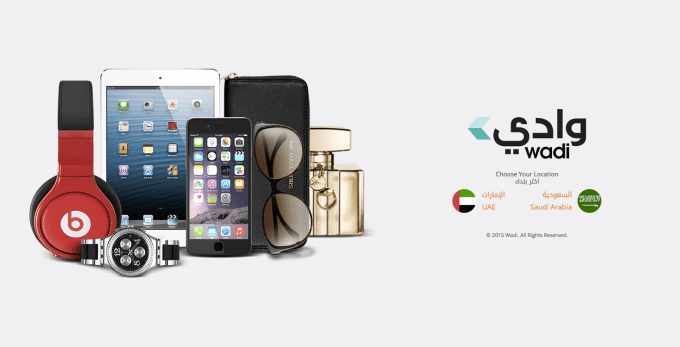The desire to dominate the e-commerce market in the Middle East is strong. And investors are getting into the action.
Last month, Mumzworld.com, an e-commerce sight geared towards mothers and baby products, raised a multi-million dollar Series B round from Wamda Capital, twofour54, and Endeavor Catalyst. And, just days ago,Wadi.com, an Amazon-like e-commerce platform operating in the Middle East, raised $67 million in a Series A round for an undisclosed valuation. The Saudi based Al Tayyar Travel Group led the round.
Both face stiff competition.
E-commerce is a huge opportunity worldwide. eMarketer estimates that retail e-commerce sales will reach $3.578 trillion. Figures on the value of the online retail market in the Middle East vary from $7 billion to $15 billion and growing, particularly as Internet and mobile phone penetration increase. Internet and smartphone penetration in the Middle East is high.
The World Bank estimates that mobile phone penetration in the Middle East is 96 percent, with penetration in individual countries varying. The highest rates are in the UAE with 88 percent using the Internet. Nielson reports that smartphone penetration in UAE is 78 percent. The majority of online transactions in the Middle East come from the Internet, though mobile is catching up.
Wadi.com in particular is eager to be a market leader. Launched in 2015, Wadi is part of the Middle East Internet Group (MEIG), a joint venture between Rocket Internet and South Africa telecom provider MTN. It currently operates in the United Arab Emirates (UAE) and Saudi Arabia and offers more than 150,000 products from “more than 2,000 international brands.”
In a press release, Pratik Gupta, the co-founder and managing director of Wadi.com said this investment will enable the company to grow further in the region. The company plans to expand to other Gulf countries including Bahrain, Kuwait, Oman, and Qatar. Eyad Alkassar, the CEO of MEIG, told Techcrunch that the startup is also eyeing expansion to Jordan.
Alkassar also noted that the funding will enable Wadi.com to expand customer services and improve its logistic capacity to “deliver quicker.” “We plan to grow our assortment of technology, investing in IT,” he told Techcrunch. Specifically, Wadi.com plans to invest in software that allows the company to “deal with hundreds of thousands of suppliers” as well as improve on logistics.

“Our big goal is to provide as many products to customers in the Middle East; to deliver those products reliably and fast,” he told Techcrunch. “We (Wadi.com) want you to have the same if not a better experience as you have in the U.S. with online retailers.” In fact, he said, if they did it right, Wadi.com could be a “better experience than sites in the West.”
Wadi.com’s main competitor is Souq.com, which already operates throughout the GCC and Egypt, has over 23 million visitors to its site each month and, as a result, dominates the market share of online retailing. Last year Souq.com raised $75 million, bringing its total investments to $150 million. It is valued at $1 billion.
Other e-commerce retailers that dominate the Middle Eastern market are Aido.com, Awok.com, Amman-based MarkaVIP, which is Gilt Group like invitation-only platform, and Zappos clone Namshi.com. Cobone is other popular online shopping sites that are focused on daily deals.
Among the challenges that all these platforms contend with is payment. Even in e-commerce, the majority of transactions are conducted in cash. According to PayPal, 80 percent of online purchases in the Middle East are made with cash-on-delivery. Credit and debit cards make up 15 percent and PayPal the remainder. “
Another challenge is logistics – storing and moving products around the region. Unlike Amazon Wadi.com does not have warehouses to store inventory. Instead, it sources products from a wide variety of retailers and sellers throughout the UAE and Saudi Arabia it reaches online. That, Alkassar noted, is what enables Wadi.com to deliver products “fast and reliably” – much faster than Amazon. The company did not disclose sales figures.
Wadi.com isn’t Rocket Internet’s first foray into e-commerce in the Middle East. In 2012, it launched Mizado.com and shut down the site five months later.
Author and investor Christopher Schroeder told Techcrunch that e-commerce in the Middle East is something to keep an eye on. “where there is increasing universal access to technology and smart devices,” he said, there is bound to be returns. “With the ease and convenience e-commerce offers and the rising middle class across the (Middle East) region, the real question is why wouldn’t e-commerce be successful?”

